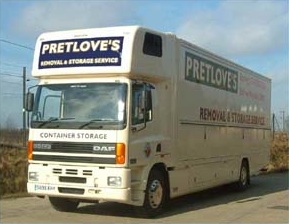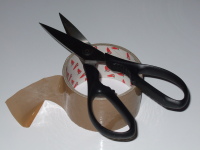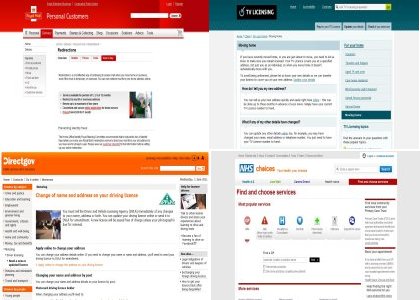Pretlove's Removal and Storage Service would like your moving day to be as stress-free as possible. Here are some tips for a successful household move. You can also follow us on Twitter for more help and tips on preparing your household furniture and effects or on our YouTube channel.
There are a lot of people to contact when you move house. Before you start download this useful Moving Checklist ![]()
General tips for your household move

-
Don't be a martyr to packing and moving - it's time-consuming and stressful, so be happy to accept any help offered.
-
Moving is a great time to have a clear-out - do you really want to things you never use? It will save on boxes and unpacking time.
-
If you're clearing out your possessions, offer to family and friends first - they may hate to see a favourite item thrown away.
-
Good quality useable unwanted items can be offered to your local charity shop or a local FreeCycle service
-
Before you move you can make money by selling good quality unwanted items on eBay or Amazon
-
Use the Furniture Re-use Network to donate unwanted furniture and appliances.
-
Hire a skip for things you don't need anymore that can't be recycled, donated or sold on. Check if there's anything you can't throw into it.
-
If parking at the loading or delivery address is difficult, apply for a parking suspension for the removal vehicle from your local council.
-
If you live somewhere that requires lift access, check that there's no scheduled lift maintenance work on the day of your move.
-
If you need accommodation for anyone over the moving period, book it well in advance, particularly if you're moving during holiday time.
-
If you've ordered carpets/curtains/furniture for your new home, double-check that they'll be delivered to your new, not old, address.
-
Let family & friends know about your new address with a Change of Address card. Make your own, buy from a stationer's or send online.
-
If you have young children, it may be better to arrange childcare on your moving day.
-
It's a good idea to put pets into kennels a few days before the move and collect them when you're settled in your new home.
-
If you're moving a long distance, make sure your car is ready for the journey. Check fuel, tyres, lights the day before you go.
-
Don't forget to back-up your computer before moving day.
-
If you belong to your local library, check that you haven't forgotten to return any books or pay any overdue fees.
-
If you're moving far away, don't leave any uncollected items in the local drycleaners, shoe repairers, etc.
-
Don't pack anything that you have on loan from local friends and family - return everything you've borrowed before you move.
-
Remember to get back all copies of household keys that you've given to family, friends and neighbours.
-
It's a good idea to change the locks in your new property in case the previous owner forgot to collect all the keys.
-
Put together a box of appliance instruction leaflets & info about rubbish collections etc for the new owners of your property.
-
If you have a big bunch of keys to pass on to the new owner it would be helpful to label what they're all for.
-
Create a floorplan or your new home before moving day. It's useful for the removal team and will mean fewer decisions on moving day.
-
If you're moving abroad with pets, check the Directgov website for advice and the quarantine rules for the country you're moving to.
-
The Cat's Protection website has some great information about moving house with cats.
-
Inform the removal company of any changes to your booking, eg. dates, quantity of items to be moved, access problems.
Packing tips

-
Stay focused when packing - if possible pack one room at a time rather than bits from every room.
-
William Morris said "Have nothing in your house that you do not know to be useful, or believe to be beautiful" - keep in mind when packing.
-
You'll need plenty of packing materials - as well as strong boxes and cartons (in a variety of sizes), you'll need tape, scissors, thick marker pens, and paper and bubble-wrap for fragile items.
-
Before you start packing your first box create a list with numbers. Write a number on each box you pack and write the contents on your list.
-
Try to be specific when keeping a list of moving box contents, eg. Write 'Saucepans', not just 'General kitchen'.
-
Old newspapers are great for packing fragile items but remember that the newsprint may come off on the items.
-
If you're packing things yourself, try to begin at least 2 weeks before your moving date. It always takes a lot longer than you think.
-
Try to have regular breaks while packing - or do a little bit every day - so that you don't get bored/distracted and give up.
-
Plan and organise your packing - pack the things you don't use very often first, and keep the essentials until the end.
-
Make sure you leave all items that are included in the sale - don't pack curtains, light fittings etc, if they're staying at the property.
-
Use our packing service if you don't have the time or energy yourself. We provide a full packing service or part-packing of breakable items.
-
Order more boxes than you think you'll need so that you don't overpack them.
-
When packing avoid making boxes too heavy, but don't underfill them as they may get crushed during the move.
-
Stick packing tape across the bottom of boxes as well as the top, to stop anything falling out of the bottom during the move.
-
When packing heavy items, like books or cookware, don't fill the box up to the top. Pack the remaining space with cushions or clothes.
-
When packing fragile things, use old clothes and underwear to fill-in the spaces in the boxes.
-
Take care when packing plates and saucers. Place them on their edge and don't stack them on top of eachother.
-
When packing cutlery, make sure all sharp knives are wrapped facing the same way.
-
When packing saucepans, place smaller kitchen items inside them and put the lid on upside down so that you can stack them easily.
-
Empty, drain and clean kitchen appliances before packing, inc. kettle, toaster, coffee machine, iron.
-
Pack books by lying them flat or with the spines facing down. Pack books of a similar size together and use a small box.
-
If you're packing CDs or old LPs, pack them standing up and not flat in a box. Protect at either end of the box with a hardcover book.
-
If you're packing a record turntable, secure down the platter and playing arm first.
-
Don't forget to ask about hanging wardrobe containers if you don't want to pack your clothes in suitcases.
-
Try to pack shoes in shoe boxes if possible - if not, wrap each shoe individually to prevent damage in transit.
-
Remember to write the room and general contents on the outside of the box and mark as fragile if it contains breakable items.
-
Keep an inventory of all the boxes you've packed, with room and content details.
-
Remember to stack the boxes you've packed with the heaviest at the bottom so that nothing gets crushed.
-
Pack a separate bag with fresh clothes, toiletries and other essentials - light bulbs, scissors, toilet rolls - for the day of the move.
-
The removal team will deal with items that are too big for boxes, eg. pictures, mirrors, but they should be taken down by the customer.
-
You don't need to empty chests of drawers, unless there are breakable items in them. Individual drawers can be removed if the chest's too heavy.
-
Don't forget to remove and pack/assemble everything from the loft, garage, shed, etc - these areas are often forgotten until moving day.
-
If you're moving gardening equipment, eg lawnmower, strimmer, drain the fuel before moving day.
-
Make sure all plants are ready to be moved. Any large tubs that are too heavy to lift should be emptied.
-
Dismantle any outside items, such as climbing frames, swings, sheds, that are to be included in the removal.
-
Run-down your food cupboards as well as your fridge/freezer before moving day. Try to move as little food as possible.
-
Moving is a good opportunity to throw out any out of date food items that have been in the cupboards for years.
-
Seal bottles, jars and packets of foodstuffs so that nothing leaks or spills during transit.
-
Try to pack wine, beer and spirit bottles in wine boxes or bottle boxes from the supermarket.
-
If fitted carpets are fixed to the floor, these should be released so that they're ready to be rolled up by staff on moving day.
-
Disconnect all electrical and gas appliances, including (unless otherwise agreed with the movers) washing machines and dishwashers.
-
If you don't have the original boxes for small kitchen appliances, pad out packing boxes with tea towels and wrap items carefully.
-
If you really can't defrost your freezer before you move, place contents in plastic bags which can be removed when lifting the freezer.
-
When dismantling shelves, units, tables, etc, tape screws & fittings securely to the underside of the item so that they don't get mislaid.
-
Take clear photos of any complicated wiring - on computers, hi-fi systems, etc. It'll make it easier to set things up in your new home.
-
Tie up and secure loose cables to electrical items when you're packing so that they don't get damaged or lost during the move.
-
Don't forget to remove items from security safes, particularly those that are concealed.
-
Last minute laundry should be done 2 days before you move so that everything can be dried and packed properly.
-
If you're taking curtains with you, and moving around the same area, take them into the dry cleaners and pick up after you've moved.
-
When you strip the beds on moving day, put the linen together in a separate bag or box so that you can find it easily at your new home.
-
Organise a box of refreshments the day before you move. Include a kettle, tea, coffee, sugar, biscuits, fruit, cups and serviettes.
-
Put together a small first aid box for the day of the move - inc. plasters, paracetemol, antiseptic, cotton wool and your regular medicines.
-
Pack a box to be opened first for each room, eg crockery, cutlery in the kitchen, bedlinen in the bedroom, towels in the bathroom.
Who to notify about your move

-
Contact your telecoms provider 2 weeks before you move. If you're moving locally, check if you can keep your old phone number.
-
Check that your internet provider operates in the area you're moving to - you may need to organise a new supplier. Check out Broadband Genie or Cable.co.uk for details.
-
If you have sitting tenants in the property you're selling, give them the agreed notice period, or inform them about the new landlord.
-
If you're moving from rented accommodation, check how much notice you need to give your landlord.
-
Let your current Council Tax office, and your new one, know about your change of address. You can often do this online.
-
Contact your current and new electricity and gas companies one week before you move. You can also change suppliers. Check Energy Choices for details.
-
Contact your water supplier one week before you move. Find out who your water supplier is in your new area.
-
If you're moving out of the area you must de-register from your doctor, dentist, optician and set up with new ones. Check the NHS website for more details.
-
Don't forget to re-register to vote when you move house. Contact your council, or check on the Electoral Commission website.
-
Organise Royal Mail redirection 2 weeks before you move. Best to do 12 months so that you don't miss anything sent annually.
-
Tell your bank that you're changing your address. It might be a good idea to move your account to your new local branch.
-
Give your new address to credit card/card protection companies. Card billing addresses often need to tally up with delivery addresses.
-
If you have any standing orders for loans or hire purchase agreements, make sure you give your new details to the companies.
-
Contact the Inland Revenue to give them your new address details.
-
If you have Premium Bonds contact the National Savings & Investments office in writing.
-
To update your National Insurance records, write to the National Insurance Office.
-
Don't forget to notify your insurance companies that you're moving house. A new address may mean a change to the policy and premium.
-
Make sure you update the DVLA with your new address. Do this online or complete section 1 on your driving licence.
-
If you have stocks and shares, update your address details via your stockbroker or with each individual company.
-
You can transfer your TV licence to your new address online.
-
If you have private medical insurance, make sure you give the company details of your new address.
-
Give your employer your new address details. They will also need this for PAYE purposes.
-
If your child is changing school, give the moving date as soon as possible to both the old and new schools.
-
If you have pets, don't forget to transfer their records to a new vet.
-
Don't forget to change your address for any subscriptions you have, eg. publications, clubs and organisations.
-
Don't forget to tell your neighbours about your moving day - particularly if it may cause access problems to their property.
-
Remember to book time off work for the moving period.
-
Say goodbye to neighbours before moving day - you'll be too busy on the day of the move itself.
On your moving day

-
Don't stay up late packing and cleaning the night before you move - you need a good night's sleep to cope with moving day stress.
-
If you're taking items with you in your car on moving day, check the day before that you can fit everything in.
-
Don't forget to charge your mobile phone the night before the move - and check that you've got credit on it.
-
Remember to have some cash for incidental items on moving day.
-
Make sure you have a big breakfast on the day of the move - you won't know when you'll be able to eat next.
-
Have some spare packing boxes or bags on hand for last-minute things on the day of your move.
-
Want to clean your old house as you move out? Keep a small box of basic cleaning supplies to one side.
-
Double-check who'll be giving you the keys to your new home and when they'll be available.
-
Think ahead about what you're going to eat on the evening of moving day. It's usually easier to eat out or get a takeaway.
-
Point out any hazards around the property to the removal team, eg. Uneven paving, broken steps, fragile furniture, etc.
-
You can never make too many cups of tea or hand around too many biscuits on the day of the move.
-
If children are staying with you on moving day, rather than in childcare, set aside a room with their toys to keep them occupied.
-
Clearly mark or set aside any boxes that you're taking with you in your car rather than in the moving van.
-
Put contact numbers for anyone involved in the move (eg. removal driver) on your mobile phone in case there are problems on the day.
-
Make sure you keep all documents, valuables and cash in a safe place during the move.
-
Remember to turn off the water, gas and electricity and do a final meter reading on the day of the move.
-
Once you think all items have been loaded into the truck, have a final walk round the house to check nothing's been left behind.
-
Double check with the removal team/driver that they have the correct address for delivery.
-
Don't forget to lock all doors and windows when you finally leave your old property.
-
When you arrive in your new property check all things that were included in the sale are there - contact your solicitor immediately if not.
-
Check that water/electricity/gas/central heating in your new property is all working as soon as you can.
-
Don't forget to read all the meters as soon as you arrive in your new home.
-
When you're in your new home, check that any existing smoke detectors do actually work.
-
It's a good idea to have a small tool kit on hand for moving into your new home - screwdrivers, hammer, chisel, nails and screws can be useful.
-
Prioritise setting up the beds in your new home - a made-up bed will be a welcome sight at the end of a busy and tiring moving day.